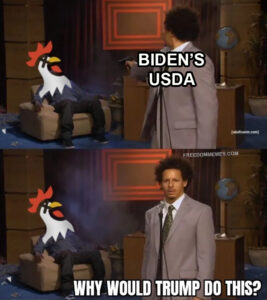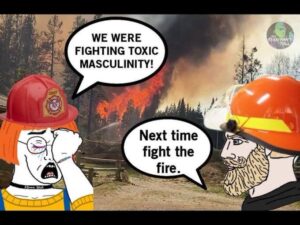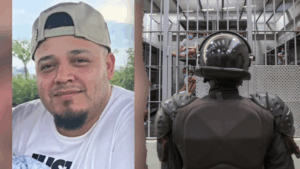Come And Take It Austin City Council
(EATER) Requiring smoke scrubbers could force Franklin Barbecue to shutter.
A proposed city council resolution could threaten Austin’s continued status as an international destination for Texas barbecue. District 3 council member Sabino “Pio” Renteria is spearheading a code change to limit barbecue smoke in residential areas, as reported by KUT. Pitmaster Aaron Franklin tells Eater if such a code were to pass, it could force Franklin Barbecue and many other barbecue joints in Austin to go out of business.
The proposed code change would require any restaurant or food truck using “a wood or charcoal burning stove or grill” within one hundred and fifty feet of residential zoning to install an exhaust system known as smoke scrubbers. Franklin estimates the cost of such a system would run between $15,000 and $20,000, which he says is not an option for even his hyper-successful business. “Cost aside, the barbecue would not be the same—it would modify how the cooker smokes,” Franklin says. “If this resolution passes, we would be forced to close or move. It would destroy Austin barbecue.”
Franklin acknowledges barbecue businesses need to be good neighbors, but says the smoker scrubbers are a wrong-headed solution. “A good, clean fire doesn’t smell bad. It’s the byproducts of an incomplete combustion that smells bad. A hot fire would fix those problems, and scrubbers wouldn’t eliminate the smell of burning wood.” Franklin also notes he carefully vetted his restaurant’s new smokehouse with all of his neighbors, and says he received nothing but enthusiastic support.
Renteria’s proposed code change is intended to address complaints by neighbors of “thick smoke” and oppressive smells. The District 3 rep told KUT:
“People cannot even open their windows without having their house smelling like barbecue,” he says. “Whatever they’re barbecuing out there, when they start their fire, it’s really thick smoke. No one wants it.”
Earlier this year, Bouldin Creek residents were bothered by the smoke from Terry Black’s Barbecue. Because of that, co-owner Michael Black tells Eater that they were looking into smoke scrubbers before the announced potential code amendment. “We’ve already put in $10,000 in modifications,” he says, “to make the pits more efficient and burn less wood,” which also resulted in less smoke time. “The TECQ [Texas Commission on Environmental Quality] has come out and done air quality readings right next to our pits,” he adds, “and we’re well below their lowest level for concern.” However, he further explains, “The neighbors have told us that they don’t want smoke reduction, they want smoke abatement, so there is where the problem arises.”
The agenda item for council to take up on April 2 would only initiate the process of amending the code; the City Manager would then have to propose the full ordinance to council “no later than May 21, 2015.” Eater has reached out to council member Renteria as well as other local barbecue restaurants for further comments. Watch this space for further updates.
Update, Tuesday, March 31, 5 p.m.: District 3 city council member Renteria made some changes to his proposed city code resolution today, according to the Austin Monitor. The updated rendition released today would require restaurants or food trucks that use either a wood or charcoal burning stove or grill that are located
100 feet of the nearest property line of a property zoned as residential base district or property used for a residential use to take appropriate action to mitigate the impact of smoke emissions on the health and quality of life of surrounding residents by relocating smoke-emitting equipment to exceed the aforementioned distance or installing smoke-mitigating devices.
He also added a condition where any regulations would need to be presented to the Planning Commission and the Council Planning and Neighborhoods Condition as well.
Renteria told the Monitor that Aaron Franklin, whom he spoke to yesterday, has been running “a clean cooking operation” for a long time and that he hadn’t heard any grievances against the barbecue trailer. Of the recommended code change, he said:
“This is basically targeted at food trailers that are bringing their pits and parking across the alley from a neighborhood. … It didn’t even cross my mind” that it would apply to long-standing barbecue restaurants that have not generated complaints.








